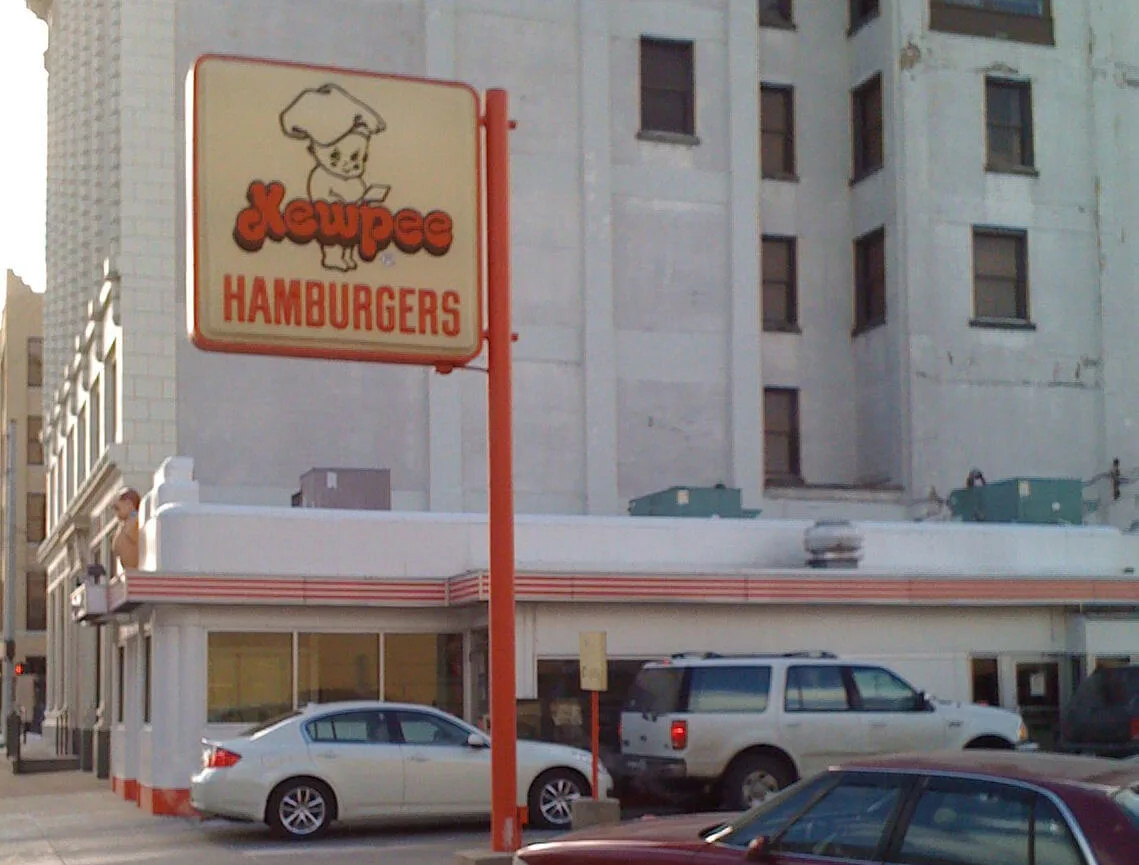
A Kewpee restaurant in Lima, Ohio. (Scott/Wikimedia Commons)
As Michiganders, we put onions on hot dogs, olives on hamburgers, and snack on Polish donuts in February. But have you ever wondered why? In our Michigan Moments: Food series, we’re checking out the history behind iconic Michigan foods and beverages. This is the ninth article of the series. Look for a new one every Wednesday!
MICHIGAN — Though it may come as a surprise to you, food from the Midwest might be considered unusual by our coastal neighbors. Midwestern cooking often combines culinary traditions from our families’ immigrant backgrounds, locally grown and produced ingredients, and the foods of Indigenous tribes. And in Michigan especially, our home cookin’ includes provisions that were concocted, bottled, and packaged by mitten-state entrepreneurs. If you’re curious about the history of some of your favorite foods and beverages, read on to discover how Michigan history creates Michigan culture.
Olive Burgers
The taste of olives is notoriously hit-or-miss, depending on personal preference. It’s a love-hate thing. But Mid-Michiganders and those from the west side of the Mitten have a particular preference for olives on hamburgers. The olive burger is a variety of hamburger mostly found only in Michigan, featuring a beef patty topped with chopped olives. Olive brine is also usually a part of the burger, or a sauce on top.
Though you’re more likely to find the olive burger in Grand Rapids or Lansing, its origins are believed to lie in the city of Flint. The popular Flint restaurant chain Halo Burger was originally known as Kewpee Hotel Hamburgers, named after Kewpie Dolls—small cherub figurines that were popular at the time.
Kewpee spread across the Midwest and became one of the first hamburger fast-food restaurant chains. After founder Samuel Blair’s death, the restaurants and the franchising rights were sold to two different businessmen. Suddenly, the Flint restaurant had to become legally distinct from the Kewpee brand. The result was Halo Burger, which deviated from Kewpee but still served up the signature olive burgers.
Today, you can find the most traditional version of the olive burger at either Halo Burger or Weston’s Kewpee Burger Sandwich Shoppe, the second-oldest family-owned restaurant in Lansing. Owner Autumn Weston uses a secret recipe for olive sauce that was originally written by her great-grandmother almost a century ago. In 2020, Weston and her family recipe olive burger won the Judge’s Choice Award at the South Beach Wine & Food Festival’s Burger Bash, a food festival hosted by the Food Network.

VIDEO: Trump isn’t the only republican facing charges for alleged financial crimes
https://www.tiktok.com/@gandernewsroom/video/7361494909938978090 A whole lot of Michigan Republicans and lobbyists are facing criminal charges for...

VIDEO: It’s expensive to be poor in Michigan
https://www.tiktok.com/@gandernewsroom/video/7361154790300060974 Ever heard of predatory payday loans? Here’s how new laws could help protect...

Here’s everything you need to know about this month’s Mercury retrograde
Does everything in your life feel a little more chaotic than usual? Or do you feel like misunderstandings are cropping up more frequently than they...

The ’Gander wins multiple 2023 Michigan Press Association awards
MICHIGAN—The ’Gander Newsroom has earned multiple awards in the 2023 Michigan Press Association Better Newspaper Contest. The awards were announced...

Michigan Republicans ask Supreme Court to restrict medication abortion access
A lawsuit supported by Republicans could disrupt access to the most common form of abortion—even in Michigan, where reproductive rights are...






